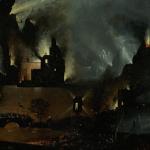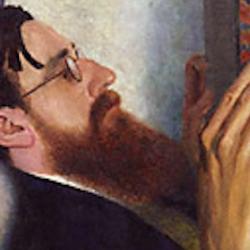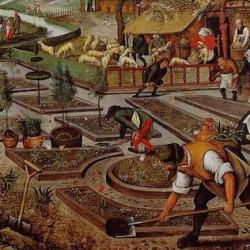David Lachterman (Ethics of Geometry) suggests that the specific novelty of the modern age is that it doesn’t regard itself as a period of history. It’s instead “consummate,” in two senses: “as the ‘final’ period which brings to a permanent close all prior epochs by exposing their imperfections and as the one period without a temporal finale. Its immanent end or telos is endlessness. Hence, the image of growth from historical infancy to historical adulthood, often figuring in early modern rhetoric, had to be abandoned as soon as those using it recalled that adulthood is naturally followed by senescence and death” (2).
Modernity claims to have entered the eschaton.
It’s a consummation focused on a singular idea, the idea of “construction” or “the ‘idea’ of the mind as essentially the power of making, fashioning, crafting, producing, in short, the mind as first and last poietic and only secondarily or subsidiarily practical and theoretical. . . . For the radical moderns and their heirs, making – understood as (trans)formative or ‘creative’ technique – is neither an occasional nor an indispensable ‘feat’ performed by rational souls, the latter when it serves the indisputable needs of the body, the former when it puts artfully on display distinctively human activities; instead, making is definitive of the mind’s ‘nature’ or better of its comportment in and toward the ‘world.’ We could parody Aristotle’s account of nous by saying of the modern mind, ‘Its actuality is making'” (4).












